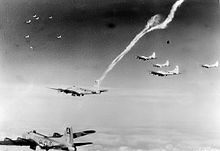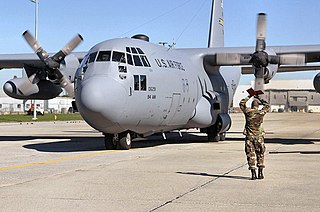
The 94th Airlift Wing is a reserve unit of the United States Air Force. It is assigned to the Twenty-Second Air Force of the Air Force Reserve Command (AFRC) and is stationed at Dobbins Air Reserve Base, Georgia. When mobilized, most of the wing would be presented to US Transportation Command, while a smaller proportion would be retained by AFRC.

The 728th Airlift Squadron is a United States Air Force Reserve squadron, assigned to the 446th Operations Group, stationed at McChord Field, Joint Base Lewis-McChord, Washington. It is an associate unit of the active duty 8th Airlift Squadron of the 62d Airlift Wing.
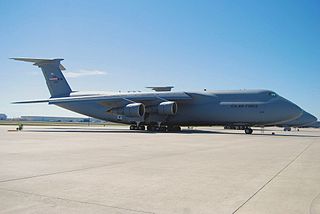
The 356th Airlift Squadron is a United States Air Force Reserve squadron, assigned to the 433d Operations Group Air Force Reserve Command, stationed at Kelly Field Annex, Joint Base San Antonio, Texas. The 356th is a C-5M Super Galaxy Formal Training Unit.

The 357th Airlift Squadron is a Tactical Airlift unit of the United States Air Force assigned to the Air Force Reserve Command and part of the 908th Airlift Wing at Maxwell Air Force Base, Alabama. It operates Lockheed C-130H Hercules aircraft providing global airlift. The 357th AS operates (8) C-130H2 aircraft that were built in the 1990s, which utilize Flight Engineers and Navigators, along with the crew complement of Pilots and Loadmasters.

The 700th Airlift Squadron is part of the 94th Airlift Wing at Dobbins Air Reserve Base, Georgia. It operates Lockheed C-130 Hercules aircraft providing global airlift.
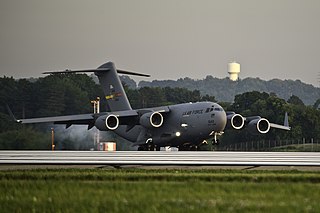
The 729th Airlift Squadron is a United States Air Force Reserve squadron, assigned to the 452d Operations Group, stationed at March Air Reserve Base, California. It operates Boeing C-17 Globemaster III aircraft providing global airlift any time, any place.

The 730th Air Mobility Training Squadron is an Air Force reserve unit stationed at Altus Air Force Base, Oklahoma, where it trains airmen on Boeing C-17 Globemaster III, Boeing KC-135 Stratotanker and Boeing KC-46 Pegasus aircraft systems. It is assigned to the 507th Operations Group at Tinker Air Force Base, Oklahoma, but performs its training mission under the direction of the 97th Air Mobility Wing of Air Education and Training Command.

The 731st Airlift Squadron is a flying unit of the United States Air Force assigned to the Air Force Reserve Command and part of the 302d Airlift Wing at Peterson Air Force Base, Colorado. It operates Lockheed C-130H Hercules aircraft providing global airlift. The squadron also has the specialized mission of Modular Airborne Fire Fighting System.

The 732nd Airlift Squadron, officially 732d Airlift Squadron, is a unit of the United States Air Force. It is part of the 514th Air Mobility Wing at McGuire AFB, New Jersey. It operates McDonnell Douglas C-17 Globemaster III aircraft in providing global strategic airlift to US and allied forces.

The 336th Air Refueling Squadron is a United States Air Force Reserve squadron, assigned to the 452d Operations Group, stationed at March Joint Air Reserve Base, California. The squadron shares its aircraft and facility with the 912th Air Refueling Squadron, a USAF Associate Unit assigned to the 92d Air Refueling Wing.

The 482d Operations Group is a United States Air Force Reserve unit assigned to the 482d Fighter Wing. It is stationed at Homestead Air Reserve Base, Florida.

The 445th Operations Group is the flying component of the 445th Airlift Wing, assigned to Fourth Air Force of the United States Air Force Reserve. The group is stationed at Wright-Patterson Air Force Base, Ohio.
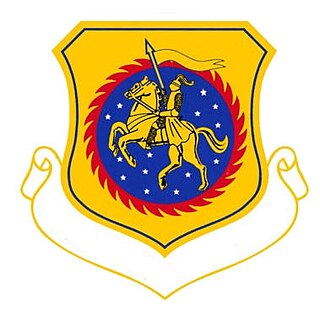
The 452d Operations Group is the flying component of the 452d Air Mobility Wing, assigned to the United States Air Force Reserve. The group is stationed at March Air Reserve Base, California.

The 302d Operations Group is the operational flying component of the 302d Airlift Wing of the United States Air Force Reserve. It is stationed at Peterson Air Force Base, Colorado.
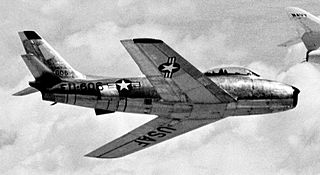
The 812th Fighter-Bomber Squadron is an inactive United States Air Force unit. Its last assignment was with 482d Fighter-Bomber Group stationed at Dobbins Air Force Base, Georgia.

The 813th Fighter-Bomber Squadron is an inactive United States Air Force unit. Its last assignment was with 482d Fighter-Bomber Group at Dobbins Air Force Base, Georgia.

The 733rd Military Airlift Squadron is an inactive United States Air Force unit. It was activated as the 333rd Bombardment Squadron during World War II. After training in the United States, it deployed to the European Theater of Operations, where it participated in the strategic bombing campaign against Germany, earning a Distinguished Unit Citation. It was inactivated in England following V-E Day.

The 355th Tactical Airlift Squadron is an inactive United States Air Force unit. Its last assignment was with 906th Tactical Airlift Group stationed at Rickenbacker Air National Guard Base, Ohio. It was inactivated on 1 July 1982.

The 704th Fighter Squadron is an inactive United States Air Force unit. It was last assigned to the 924th Fighter Group at Bergstrom Air Force Base, Texas, where it was inactivated on 27 September 1996, when Air Force operations at Bergstrom ended.

The 705th Tactical Airlift Training Squadron is an inactive United States Air Force unit. It was last assigned to the 924th Tactical Airlift Group at Ellington Air Force Base, Texas where it was inactivated on 30 June 1976, when reserve flying operations at Ellington ended.




